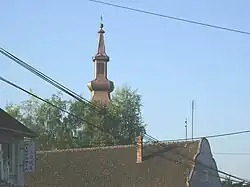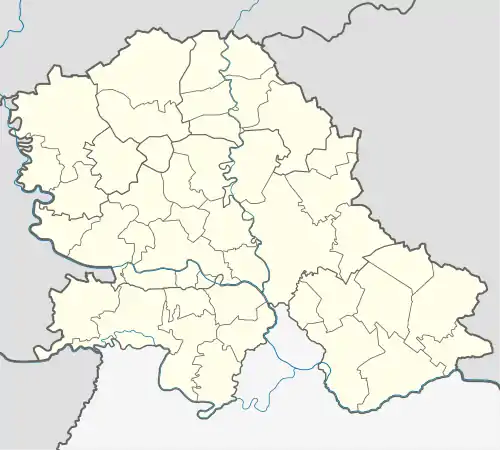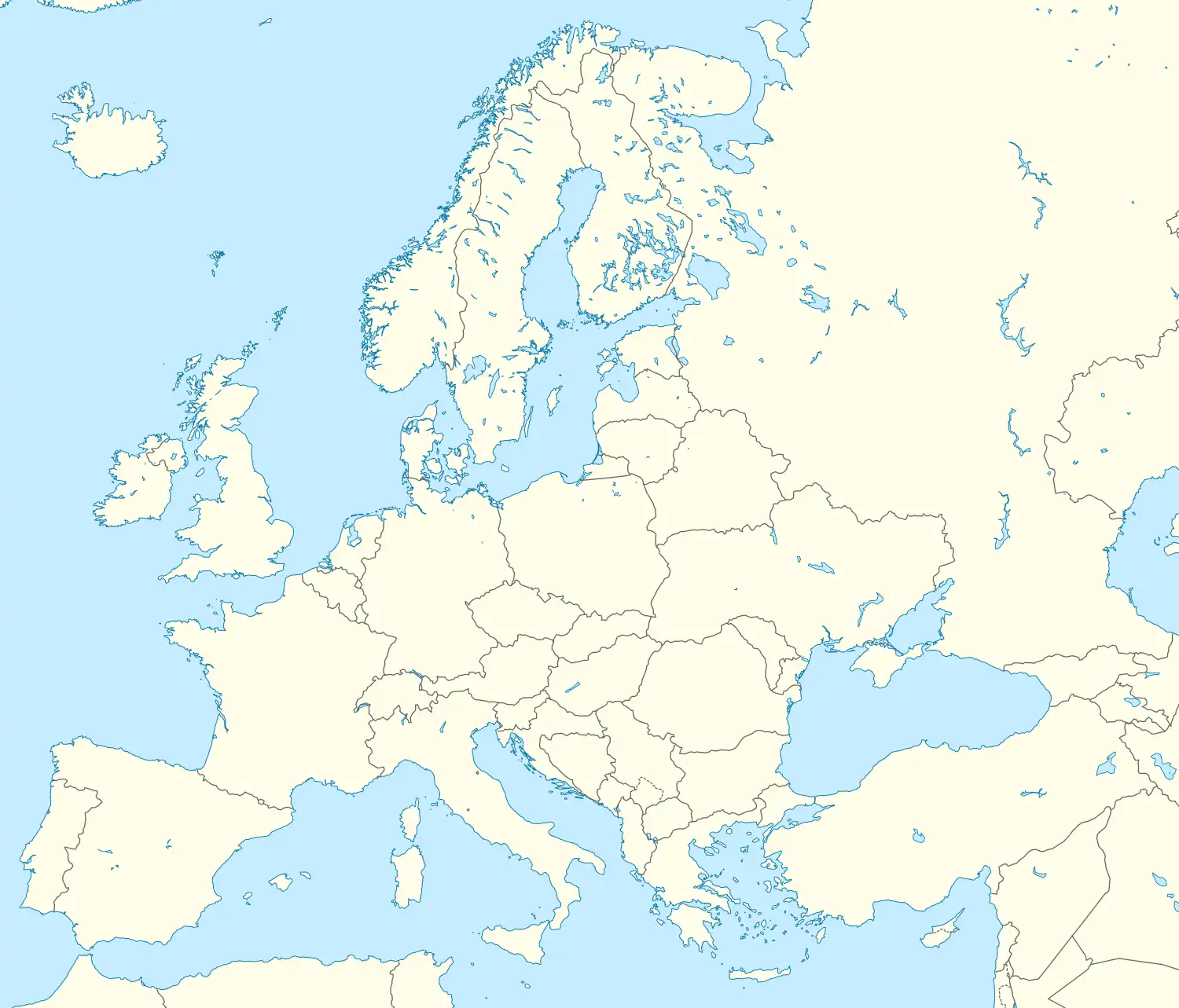Grebenac
Grebenac (Serbian Cyrillic: Гребенац, Romanian: Grebenaț) is a village in Vojvodina, Serbia. It is situated in the Bela Crkva municipality, in the South Banat District, Vojvodina province. The village has a Romanian ethnic majority (82.3%) and a population of 1,017 (2002 census).
Grebenac
| |
|---|---|
 The Romanian Orthodox Church | |
 Grebenac Location of Grebenac within Serbia  Grebenac Grebenac (Serbia)  Grebenac Grebenac (Europe) | |
| Coordinates: 44°52′21″N 21°15′11″E | |
| Country | Serbia |
| Province | Vojvodina |
| District | South Banat |
| Elevation | 60 m (200 ft) |
| Population (2002) | |
| • Grebenac | 1,017 |
| Time zone | UTC+1 (CET) |
| • Summer (DST) | UTC+2 (CEST) |
| Postal code | 26347 |
| Area code | +381(0)13 |
| Car plates | VŠ |
Name
In Serbian, the village is known as Grebenac (Гребенац), in Romanian as Grebenaț, in Hungarian as Gerebenc, and in German as Grebenatz.
Historical population
Romanian presence is attested by a stone cross in the local graveyard, from 1297 and by a document in Wiena about a trial between Luca family and another local family. In 1970s some 490 residents of Grebenac went abroad as gastarbeiters, mostly to Salzburg where there was some 300 of them.[1]
- 1961: 2,129
- 1971: 2,040
- 1981: 1,893
- 1991: 1,608
Personalities
- Vasko Popa, poet; studies at the University of Bucharest and in Vienna. During World War II, he fought as a partisan and was imprisoned in a German concentration camp.
References
- William Zimmerman (1987). Open Borders, Nonalignment, and the Political Evolution of Yugoslavia. Princeton University Press. p. 97. ISBN 0-691-07730-4.
- Slobodan Ćurčić, Broj stanovnika Vojvodine, Novi Sad, 1996.
External links
Wikimedia Commons has media related to Grebenac.
This article is issued from Wikipedia. The text is licensed under Creative Commons - Attribution - Sharealike. Additional terms may apply for the media files.